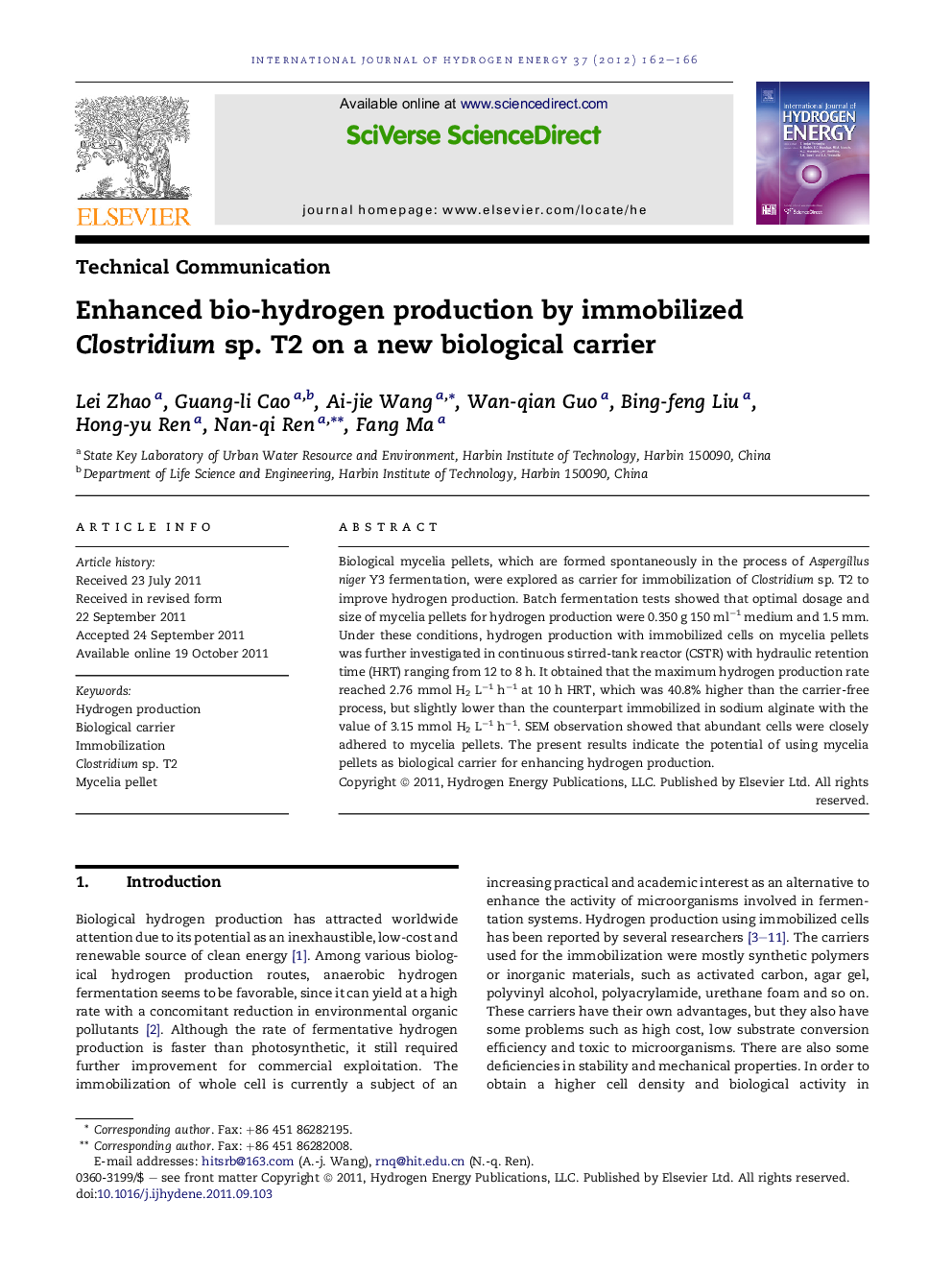| Article ID | Journal | Published Year | Pages | File Type |
|---|---|---|---|---|
| 1277133 | International Journal of Hydrogen Energy | 2012 | 5 Pages |
Biological mycelia pellets, which are formed spontaneously in the process of Aspergillus niger Y3 fermentation, were explored as carrier for immobilization of Clostridium sp. T2 to improve hydrogen production. Batch fermentation tests showed that optimal dosage and size of mycelia pellets for hydrogen production were 0.350 g 150 ml−1 medium and 1.5 mm. Under these conditions, hydrogen production with immobilized cells on mycelia pellets was further investigated in continuous stirred-tank reactor (CSTR) with hydraulic retention time (HRT) ranging from 12 to 8 h. It obtained that the maximum hydrogen production rate reached 2.76 mmol H2 L−1 h−1 at 10 h HRT, which was 40.8% higher than the carrier-free process, but slightly lower than the counterpart immobilized in sodium alginate with the value of 3.15 mmol H2 L−1 h−1. SEM observation showed that abundant cells were closely adhered to mycelia pellets. The present results indicate the potential of using mycelia pellets as biological carrier for enhancing hydrogen production.
► Mycelia pellets were explored as carrier to improve hydrogen production. ► Optimal mycelia pellets dosage and size were tested. ► Continuous process demonstrated the immobilization quality of mycelia pellets. ► Mycelia pellet is an alterative carrier for improving hydrogen production.
